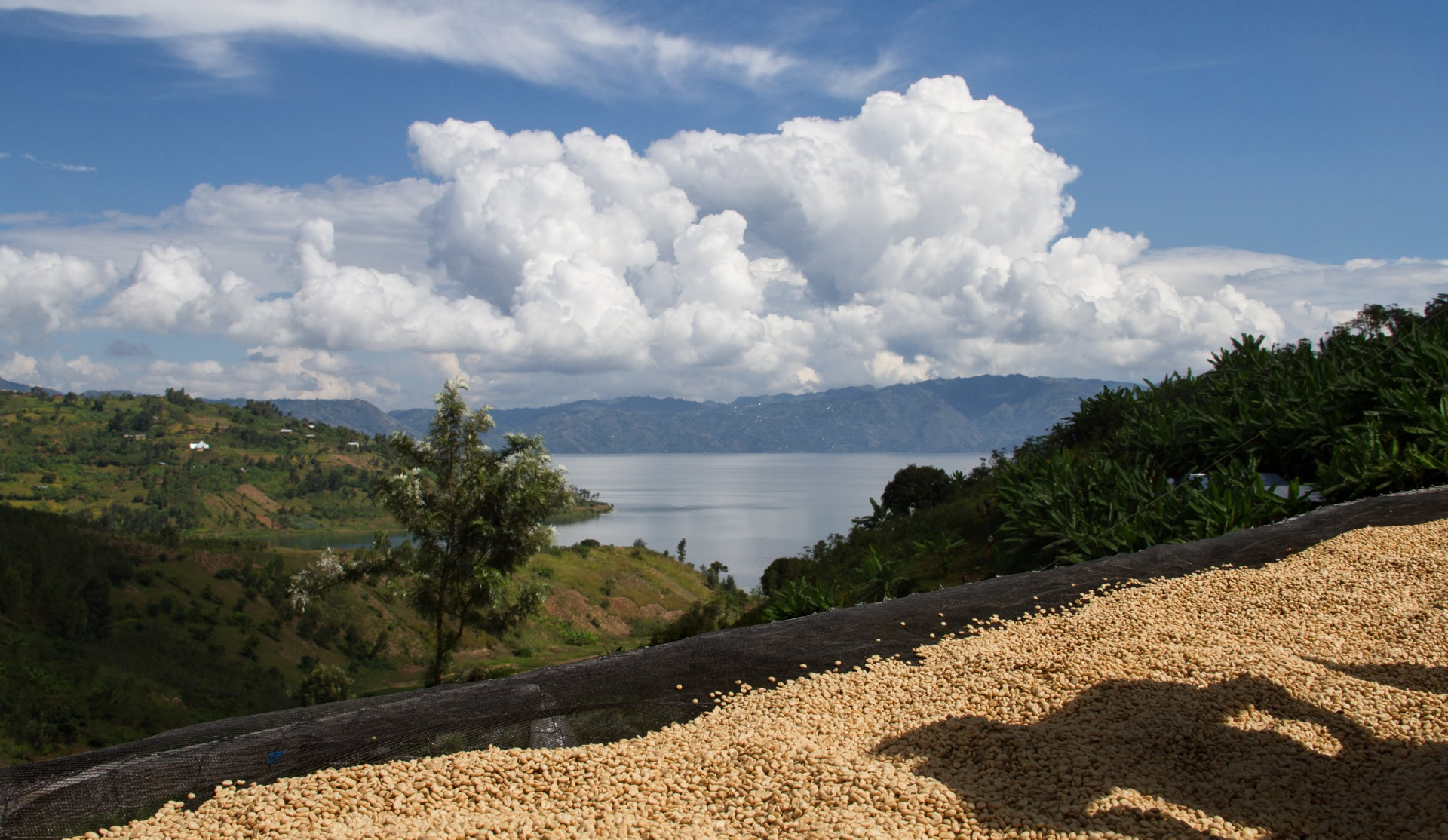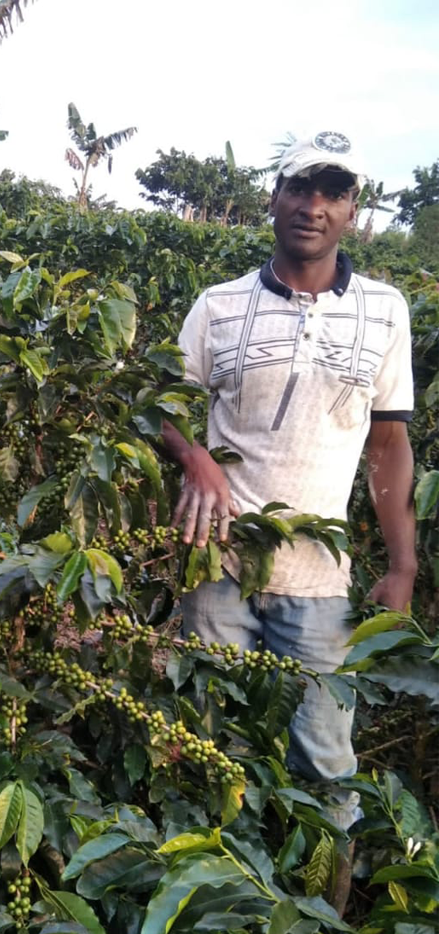
REHABILITATION
In line with our mission in the UK, we support the rehabilitation of coffee producers previously involved in conflict, crime or the drug trade. We’ve been working with a project in Colombia which supports farmers who were previously members of paramilitary groups, and want to move away from growing illegal plants for the drugs industry and instead produce coffee. This allows them to have a steady, sustainable income which provides for their family and creates stability within their community.
12%
of our purchased coffee
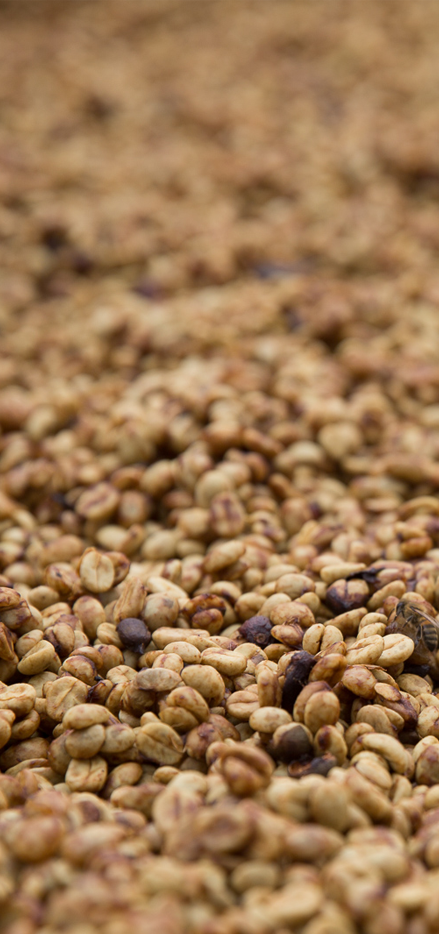
Sustainable Initiatives
Economic and environmental sustainability are important issues at every stage of the coffee supply chain.
We work with Caravela, who on top of paying farmers up front, have an on-the-ground team to work with farmers improving their farm yield and reduce carbon emissions.
We also work closely with Raw Material CIC, who reinvest all profits at origin.
54%
of our purchased coffee
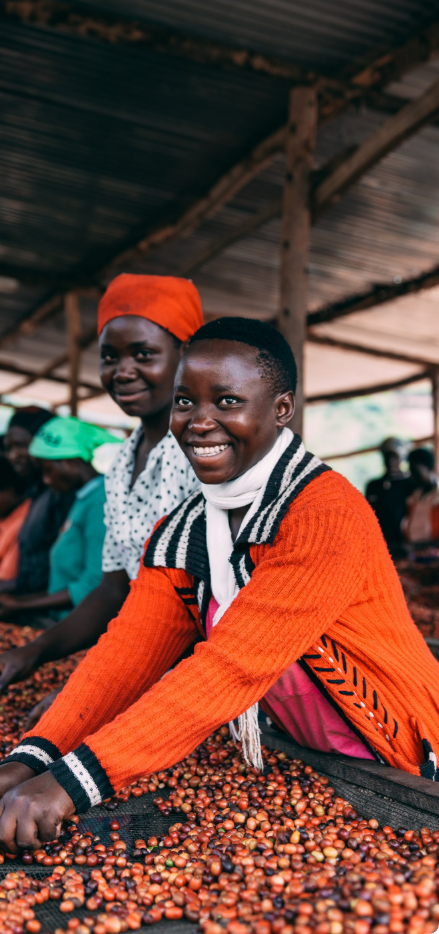
Female Economic Empowerment
We support the promotion of female coffee producers to improve gender equality in the industry. In an industry where women do most of the labour but rarely hold positions of power, we want to help reset the balance. We’ve built a relationship with Patricia Coelho, a female producer in The Pinhal Region in Brazil, to create our house espresso blend, The Block. We now do a lot of business with Patrica, giving her the capital to invest in producing better and better coffee and thereby access the speciality market. 2023 marks our third year working with Patricia.
31%
of our purchased coffee
